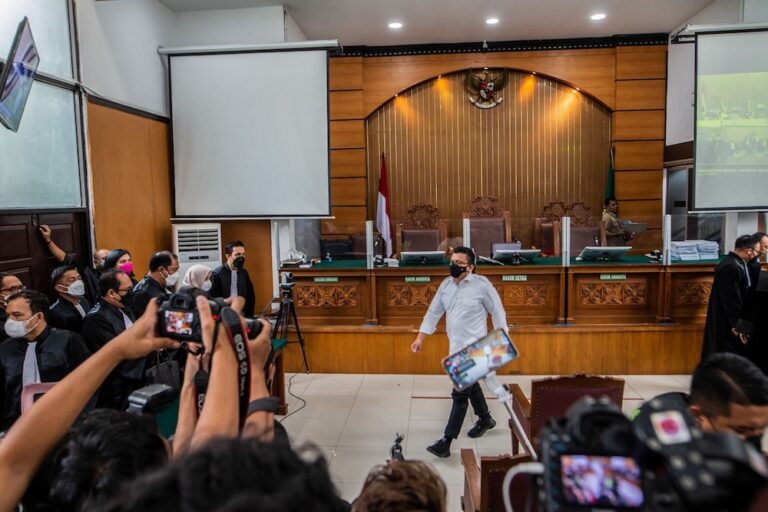Approximately 500 pages of internal documents have come to light, exposing the military's surveillance of peaceful activists, politicians and clergy.
(Human Rights Watch/IFEX) – New York, August 15, 2011 – Internal military documents that recently came to light expose the Indonesian military’s surveillance of peaceful activists, politicians, and clergy in the easternmost province of Papua, Human Rights Watch said today. Human Rights Watch urged the Indonesian government to order the military to cease the unlawful monitoring immediately, and to ensure that civilian authorities retain responsibility for basic law enforcement.
The approximately 500 pages of documents, dated 2006 to 2009, include detailed reports of military surveillance of civilians and provide military perspectives on social and political issues in the area. Most are from Indonesia’s Special Forces (Komando Pasukan Khusus, or Kopassus) and the Cenderawasih military command in Jayapura, the provincial capital. They range from internal briefings, presentations, teaching tools, and intelligence products such as daily and quarterly Kopassus reports, to a paper on the status of Papua under international law. A separate document that came to light recently describes a surveillance operation in 2011, indicating that such surveillance continues.
“The Kopassus documents show the deep military paranoia in Papua that conflates peaceful political expression with criminal activity,” said Elaine Pearson, deputy Asia director at Human Rights Watch. “It’s outrageous in a modern democratic country like Indonesia that activists, clergy, students, and politicians are the targets of military surveillance.”
Access to Papua is tightly controlled. Few foreign journalists and human rights researchers can visit independently without close monitoring of their activities. Officially, Kopassus operates in Papua to monitor and suppress the Papuan separatist movement, the Free Papua Movement (Organisasi Papua Merdeka, OPM), which has been leading an armed struggle against the Indonesian government since the 1960s. Human Rights Watch has long documented serious violations by government security forces in Papua, including killings, enforced disappearances, torture, and arbitrary arrest and detention.
The documents show, however, that the focus of Indonesian military operations in Papua goes far beyond the relatively small group of OPM rebels and includes a broad swathe of Papuan political, traditional, and religious leaders, and civil society groups.
The notion that the Indonesian government and military have more to fear from peaceful “political separatist” activity than from armed separatist groups is explicit in several places in the documents, implicit in many more, and is repeatedly reinforced throughout the military’s analysis, Human Rights Watch said.
A Kopassus quarterly report from Kotaraja dated August 2007 states, “Current political activity in Papua is very dangerous compared to the activities of Papuan armed groups because their access already reaches abroad . . . [In Jayapura and other towns] political separatist groups carry out their political activities such as demonstrations, press conferences, and secret meetings.”
“By treating news conferences, demonstrations, and meetings like clandestine criminal activities, the military shows its disregard for fundamental rights in Papua,” Pearson said. “The military should immediately end its harassment and surveillance of civil society.”
( . . . )


